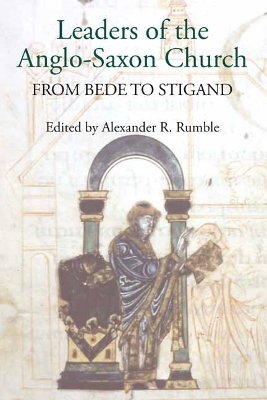Both episcopal and abbatial authority were of fundamental importance to the development of the Christian church in Anglo-Saxon England. Bishops and heads of monastic houses were invested with a variety of types of power and influence. Their actions, decisions, and writings could change not only their own institutions, but also the national church, while their interaction with the king and his court affected wider contemporary society. Theories of ecclesiastical leadership were expounded in contemporary texts and documents. But how far did image or ideal reflect reality? How much room was there for individuals to use their office to promote new ideas?
The papers in this volumeillustrate the important roles played by individual leading ecclesiastics in England, both within the church and in the wider political sphere, from the late seventh to the mid eleventh century. The undeniable authority of Bede and Bishop AEthelwold is demonstrated but also the influence of less-familiar figures such as Bishop Wulfsige of Sherborne, Archbishop Ecgberht of York and St Leoba. The book draws on both textual and material evidence to show the influence (by both deed and reputation) of powerful personalities not only on the developing institutions of the English church but also on the secular politics of their time.
Contributors: Alexander R. Rumble, Nicholas J.Higham, Martyn J. Ryan, Cassandra Rhodes, Allan Scott McKinley, Dominik Wassenhoven, Gale R. Owen-Crocker, Debby Banham, Joyce Hill.
- ISBN10 1843837005
- ISBN13 9781843837008
- Publish Date 15 April 2012
- Publish Status Active
- Publish Country GB
- Publisher Boydell & Brewer Ltd
- Imprint The Boydell Press
- Format Hardcover
- Pages 216
- Language English
